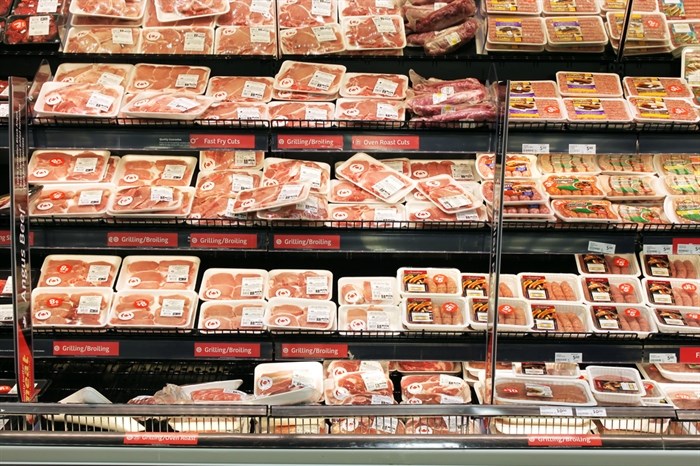
Image Credit: Shutterstock
December 16, 2015 - 8:00 PM
A looming trade war between Canada and the U.S. over meat labelling moved closer to resolution Wednesday, but Ottawa is keeping the threat of retaliation on the table until there's a full surrender south of the border.
Two Liberal cabinet ministers refused to withdraw the threat of retaliation following the tabling of legislation in the U.S. Congress that would repeal the controversial meat-labelling law known as COOL.
The World Trade Organization granted Canada and Mexico the right to retaliate by imposing $1 billion in punitive tariffs on various U.S. products after finding that COOL violated international trade rules.
International Trade Minister Chrystia Freeland said she had good talks with her Mexican counterparts Wednesday in Nairobi, Kenya, where they are attending a WTO ministerial meeting. Both sides are moving ahead with the next step — pursuing full and final WTO authorization to retaliate, in a meeting that could come as early as Friday.
"We have agreed to work very closely together on this issue, including when it comes to retaliation," said Freeland. "I want to strongly encourage the Senate to get the job done — repeal COOL."
Freeland and Agriculture Minister Lawrence MacAulay told journalists during a conference call that they're encouraged by the tabling of the legislation in Congress, and will be watching closely to make sure it wends its way through both the lower House of Representatives and the upper Senate chamber.
MacAulay said Canada won't back down until COOL is formally repealed by U.S. lawmakers.
"That is the bottom line before anything changes on this end," he said.
The bill would repeal mandatory country-of-origin labelling on beef and pork, which would end a years-long dispute just before it escalated with a series of tariffs looming on U.S. products.
Canada and Mexico have been set to impose more than $1 billion in punitive measures on a wide range of U.S. goods including meat, wine, chocolate and frozen orange juice.
They would pull back from retaliation if American lawmakers repeal country-of-origin labelling — they say it harmed their meat exports and the WTO sided with them.
U.S. legislators are expected to begin debate Wednesday on a monster omnibus bill — a 2,009-page pile of legislation that makes a brief two-page reference to the meat labels.
The legislative package was negotiated between Republican and Democratic leaders and its most hotly debated provision is unlikely to be meat labels — but the loosening of a 40-year quasi-total ban on U.S. oil exports.
Canada's ambassador to the U.S., Gary Doer, welcomed the news but said he wouldn't be celebrating until the bill passes both chambers of Congress and gets signed by the president.
"This is the result of a full-court press," he said, referring to the government and business lobbying efforts over the years.
"(But) we won't have a beer to celebrate — a Canadian beer to celebrate — until the president signs the bill."
Votes could happen later this week, or early next week.
Supporters of country-of-origin labelling say consumers deserve to know where their meat comes from. Opponents say it doesn't do anything for safety — for which there are already inspections.
Those critics call it a thinly disguised protectionist measure, designed to complicate the importing process for non-American livestock and make it more expensive.
They say Canadian meat exports plummeted as a result of decade-old country-of-origin labelling rules.
John Masswohl of the Canadian Cattlemen's Association pointed to the example of Tyson Foods.
He said Canada used to send beef to four of its U.S. facilities, and now exports to only two — and only on one day per week, so workers there can sort out which livestock comes from Canada.
"We think this is going to have a huge impact," Masswohl said of the bill Wednesday.
"And it could have a pretty immediate impact in terms of the prices we receive."
The bill lifts beef and pork from the list of products subject to country-of-origin labelling requirements, but exempts chicken for which country-of-origin labels will still apply.
That's only one provision of a bill that could prompt noisy debate about energy and the environment. Its provisions allowing oil exports from the U.S. would reverse a long-standing policy, implemented at the height of the 1970s energy scare.
That provision is a major win for the U.S. oil industry and will anger many environmentalists. It would affect the American energy market, not to mention having a potential trickle-down effect on the U.S.'s biggest oil supplier: Canada.
News from © The Canadian Press, 2015